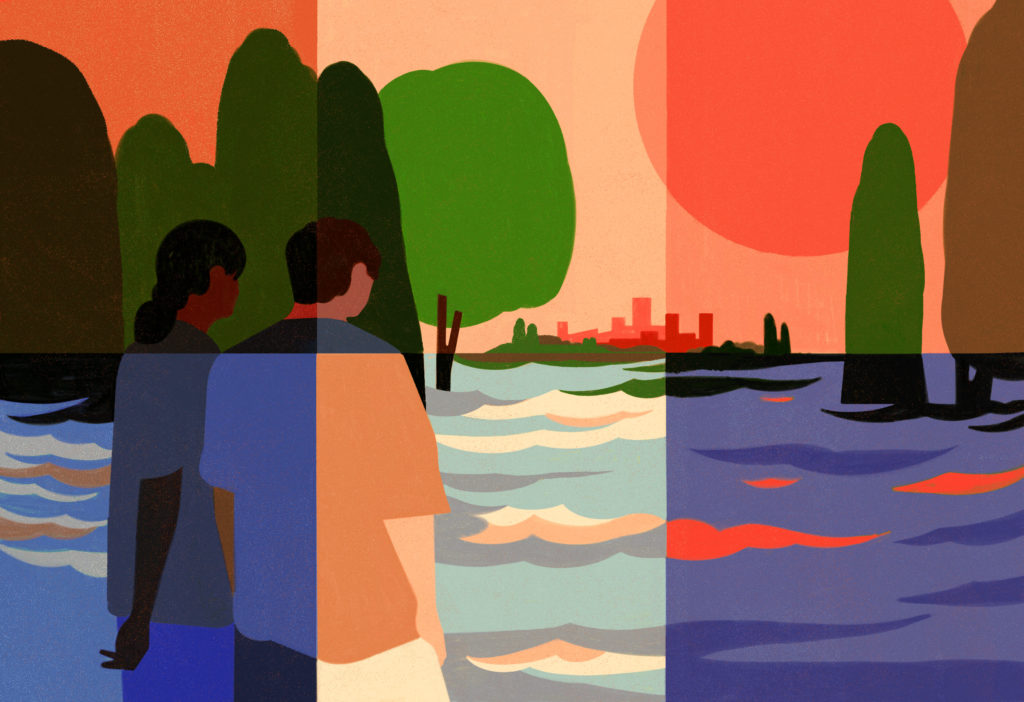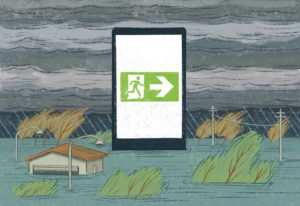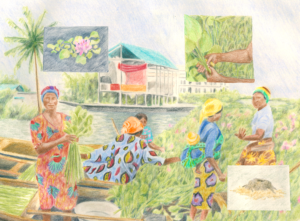
Description
The WeADAPT project had the ambitious objective of increasing the awareness of some Italian communities – in particular young people from three urban contexts in Lombardy, Lazio, and Campania regions – on the risks linked to climate change, improving their adaptive capacities and their resilience. The project included specific training for involved Italian RC volunteers, educational workshops about climate adaptation in schools, and community events with an “escape room” game about flood disaster risk reduction.
Context
Italy is considered a hotspot of climate change in the Mediterranean area, and its effects, either slow-onset or extreme events, are impacting the territory in several ways (floods, drought, landslides, etc.) depending on the region. Spreading awareness in communities is crucial for climate change adaptation. In line with Italian RC strategies, the project mainly aimed to empower youth as change makers in their communities, also trying to answer their increasing uncertainties about the future. The structure of the project allowed to overcome organisational limits, such as number and time-availability of volunteers, thanks to a “cascading” effect: two Italian RC trainers trained thirty Volunteers (ten per each region), who then organised activities in schools and events in public spaces, involving students and teachers, community members, and other Volunteers for support. Moreover, students were offered the Y-adapt curriculum, which includes an “action phase”, so they planned further actions towards other students and their broader community. The involvement of teachers gave continuity to the activities and set the network for analogue projects in following years. Events in public spaces had a broader target, and the use of the “escape room” game allowed for giving important information about flood disaster risk reduction in a short time.
Technical details & Operations
The WeADAPT project has been developed in 3 phases:
- Capacity building of Italian RC volunteers – The Italian RC volunteers involved were trained on the causes and impacts of the climate crisis, with respect to the approach of the IFRC 2030 Strategy and the Italian RC 2018-2030 Strategy to the issue, with respect to the facilitation of Y-adapt sessions, with practical tests, and finally with respect to setting up an escape room themed around flood disaster risk reduction.
- Non-formal education activities in schools – non-formal education courses were activated, in schools or in an extra-scholastic context, on adaptation to climate change, employing the Y-Adapt educational tool, involving high-school students.
- Raising awareness and preparing communities for emergencies, through community events – Italian RC volunteers hosted an “escape room” game about flood disaster risk reduction in a public space.
The capacity building of Italian RC volunteers involved in the project included 20 hours of training, either online or in-person.
The non-formal education action in schools includes the facilitation of the Y-adapt an interactive game-based curriculum, approximately in four two-hour meetings spread over ten to twelve weeks. A questionnaire is proposed at the beginning and end of the course to verify the students’ awareness and knowledge on the topic and establish the effectiveness of the activities carried out.
Y-Adapt responds to the need for educational and awareness-raising materials regarding the phenomenon of climate change aimed at young people, supporting them in critical thinking and the search for solutions. The aim is to inspire young people to take action in their communities to adapt to the consequences of climate change. Y-Adapt was created by the Red Cross Red Crescent Climate Center in partnership with Plan International, Philippine Red Cross and Emerson College Engagement Lab. It is aimed specifically at young people between 13 and 25 years old, in groups of maximum thirty participants.
The “escape room” game about flood disaster risk reduction was previously elaborated at the local level, then spread to other Italian RC local branches thanks to the WeADAPT project and was further developed.
Deployment & Impact
The project took place during the entire school year and involved almost 400 students in several schools in the abovementioned regions. The lessons were carried out in agreement with teachers and facilitators, during which students were guided towards concepts such as climate change, adaptation and new awareness of resources and their protection through Y-adapt, the training tool. Through the comparison between the initial and final questionnaires, although anonymous, we are able to measure the impact of the tool and the improvement of knowledge on the topics addressed. At the end of the school course, the last phase of community events, the students themselves become protagonists, collaborating in the management of activities. The team of volunteers and students then support the participants, who are placed in an emergency-type context set up in a series of rooms from which they must exit in a pre-established time, taking advantage of creative and problem-solving skills, overcoming codes, enigmas, puzzles and riddles, respecting the RCRC humanitarian principles and values. The escape room is an innovative and effective tool to raise awareness of important issues by dynamically involving the young segment of the population. Around 600 people were involved in the community events organised to conclude the project.





